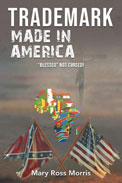
 |
Many African descendants in America bear the cruel legacy of enslavement. During the years of the slave trade, African men and women were captured and brought here in chains, tortured or killed for the smallest infraction, with no knowledge of the language, no personal possessions, and few familial connections. But Morris believes that added to these factors was an insidious plan to make slaves even weaker and unlikely to rebel. It was detailed in what is known as the Willie Lynch letter. This document was first brought to light in the 1970s and said to be a transcript of a speech given by Lynch, a plantation owner from the British West Indies, to a group of white slave owners in Virginia in 1712. In it, Lynch, whose name became synonymous with the term for murdering blacks, describes the method for managing and controlling African slaves. Mere violent punishment is ineffective in the long run, he stated. What was needed was a psychological restructuring of the slave’s deepest values.
In order to control slaves, according to Lynch, white owners would punish black men severely in the presence of their wives and womenfolk. This would cause mothers to raise their sons to be obedient to the master, docile, but physically strong so that they could do their work as expected. The female slaves were rewarded with attention as they developed these traits, so they would become naturally hard-working, even ambitious, to please the master and raise their daughters to do likewise. The master would also use such issues as skin color to keep the slaves in a state of mistrust and competition among themselves, rewarding lighter-skinned folk and shaming those with a darker complexion. The traits described give a surprisingly accurate view of some of the problems that African Americans still experience. Morris wishes her fellow African Americans to acknowledge these weaknesses inculcated by arrogant, selfish white slave owners. Through understanding these psychologically implanted barriers, modern African slave descendants can eliminate them now and forever.
Morris, an educator, therapist, and inspirational speaker, makes her argument cogently, examining the racial stereotypes that are accepted within American black society through such elements as well-known films, court cases, and even mainstream Christianity, which has always painted Jesus as a white man when he was arguably of a darker complexion. She urges black women to celebrate their beauty, especially their hair, which has been denigrated by comparison with white characteristics. She encourages African American men to develop more favorable relationships with darker-skinned women instead of looking at light complexion as a prize to be won as proof of manhood. She casts a strong light on biblical history, making clear her belief that early Israelites would have been dark-skinned Africans and that African civilization existed long before white Europeans. She relates many of the current ills of American black society to the model of the Lynch letter—which can be considered a curse upon black Americans—and hopes that thoughtful readers will begin to erase that negative influence and start proactively to seek the blessings of true freedom and equality.